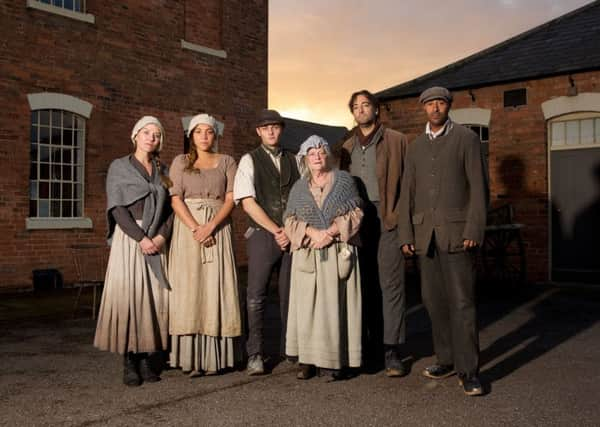Dani Garavelli: ‘Hard-working’ doctrine is a lie


If you had assumed the general election would mark the peak of our politicians’ obsession with hard-working people, then last week must have proved a disappointment because the Queen’s Speech continued to riff on the same, tired old theme. It was depressing enough to discover the Immigration Bill – which would allow police to seize the wages of illegal workers as the “proceeds of crime” – was aimed at putting “hard-working British families first” (and screw the rest of you), but when a reference to the willingness to graft managed to find its way into the Psychoactive Substances Bill, it was clear all sense of perspective had been lost.
There is a part of me that hopes the clause explaining that the proposed ban on legal highs is aimed at “protecting hard-working citizens from the risks posed by unknown, untested and potentially harmful drugs” was the result of a civil servant taking the opportunity to sample a few before it’s too late; or better still, that some subversive snuck it in to demonstrate how the government’s over-use of the phrase is pushing it into The Thick of It territory. But it seems more likely the mantra is now so well-established in the political lexicon no-one stopped to ask themselves why hard workers would be any more deserving of protection from psychoactive substances than the unemployed (especially given prevailing government stereotypes dictate hard-working people are unlikely to dabble, while feckless benefits scroungers spend their days getting off their faces); or why British citizens would be more deserving of protection than those who are just passing through.
Advertisement
Hide AdAdvertisement
Hide AdOf course, the whole point of the “hard-working” tag has been to create division between the worthy and the unworthy poor – the industrious versus the idle, strivers versus skivers – and to stigmatise the jobless. There’s no attempt to find out why people are unemployed: if they’re disabled, depressed or single parents or if they’re genuinely indolent. Perhaps they’re desperate to work; perhaps they spend their days jumping through pointless hoops in the hopes of manning a supermarket check-out. Perhaps they’ve suddenly found themselves on the scrapheap after a lifetime of loyal service. It doesn’t matter. If they’re not earning an income or generating wealth, they’re a drain on the system, and their toil, which might include providing round-the-clock care for a relative, counts for naught.
The fetishising of hard work – by Labour as well as the Tories – must be one of the most regressive political fixations of our time. It implies that our productivity, as opposed to our happiness or well-being, is the proper measure of our success. For those of us who enjoy our jobs, work and contentment may be intertwined. But even then, it is part of an equation, not the entire sum. We work so we can put food on the table and enjoy spending time with the people we love. To define us by the number of hours we are willing to spend at the coalface is to strip us of our humanity, to reduce us to automatons on the relentless production line of life. The more the phrase is used, the higher expectations are raised and the tougher things become. At its worst, it allows employers to under-pay and governments to justify punitive policies such as welfare reform and the lowering of the benefits cap. Are you struggling to get by? It’s your own fault. Why don’t you work harder?
The whole concept is based on a lie. It implies that hard work will be rewarded; that those who try – who really try – will thrive, when the opposite is often true. All over the country, there are people on the minimum wage and/or zero hours contracts, who are on the poverty line. Once, arguably, hard work meant dignity and self-betterment. Today it’s just as likely to mean stress and fear and drudgery combined with the “shame” of an occasional visit to a foodbank.
Last week, the national fixation with hard-working people reached its logical televisual conclusion with the announcement of Britain’s Hardest Grafter. This forthcoming programme, dubbed Benefits Street meets The Hunger Games, will pit 25 of the country’s poorest people – those who earn or receive benefits totalling less than £15,000 a year – against each other for the title of “most effective worker” and a £15,000 prize (less than many TV executives earn in three months).
We have already seen 24 Hours In The Past send celebrities off to a Victorian workhouse to sample the back-breaking toil inflicted on 19th century paupers. Now we will able to able to watch modern-day paupers endure similar indignities. It is not yet clear what “real-world job challenges” contestants will have to undertake, but if it is going to make “good telly”, they are likely to be pushed to their physical and emotional limits.
The programme-makers say they aim to explore the world of low-pay, but really they are just trading on people’s desperation and the received wisdom that working harder is the answer to everything. The iniquity of this social experiment has already been recognised; a petition calling on the BBC to abandon the project has garnered 12,000 signatures. But, while campaigners are right to deride the broadcasters, this is where the political rhetoric and austerity policies of the past five years were bound to end: in a world where “hard work” is synonymous with exploitation, where longer hours and lower pay is the norm and where ordinary people bear the burden of society’s failings. They don’t call it reality TV for nothing. «